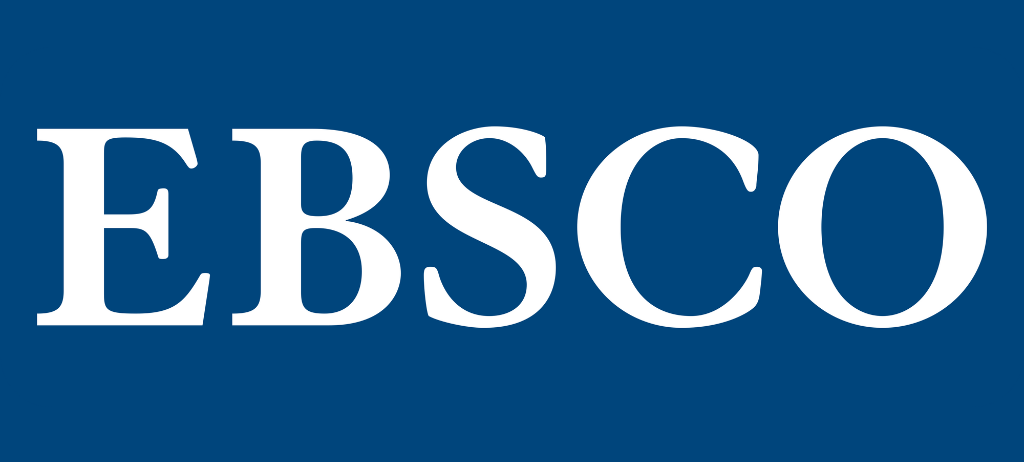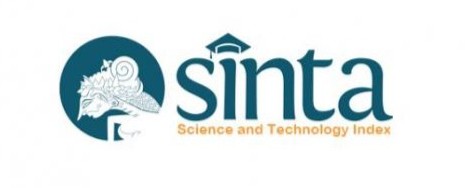BUDAYA TELEVISI DI INDONESIA: Wacana dan Kepentingan Ideologis dari Dua Periode
Downloads
Adorno, Theodor W. 1991. The Culture Industry: selected essays on mass
culture. London: Routledge.
Adorno, Theodor W. & Max Horkheimer. 1993. "The culture industry:
enlightment as mass deception”. Dalam Simon During (ed). The Cultural
Studies Reader. New York: Routledge
Aschroft, Bill. 2001. Post-colonial Future: Transformation of Postcolonial
Culture. London: Continuum.
Bhabha, Hommi K. 1994. The Location of Culture. London: Routledge.
Boggs, Carl. 1984. The Two Revolution: Gramsci and the Dilemas of Western
Marxism. Boston: South End Press.
Collins, Richard. 1990. Television: Policy and Culture. London: Unwin Hyman.
Einstein, Mara. 2008. Brands of Faith: Marketing religion in a commercial age.
London: Routledge.
Fiske, John. 2002. Television Culture. London: Routledge.
Fiske, John & John Hartley. 2004. Reading Television. London: Routledge.
Featherstone. 2007. Consumer Culture and Postmodernism, 2nd Edition.
London: Sage Publications.
Fontana, Benedetto. 2008. "Hegemony and Power in Gramsci”. Dalam Richard
Howson & Kylie Smith (eds). Hegemony: Studies in Consensus and
Coercion. London: Routledge.
Foucault, Michel. 1984. "Truth and Power”. Dalam Paul Rainbow (ed). Foucault
Reader. New York: Panthean Books.
____________. 1981. "The Order of Discourse”, Inaugural Lecture at the
College de France, 2 Desember 1976, dipublikasikan kembali dalam
Robert C. Young (ed). Untying the Text: A Post-Structuralist Reader.
Boston: Routledge & Kegan Paul Ltd.
____________. 1980. Power/Knowledge. Brighton: Harvester.
Ginsburg, Faye D., Lila Abu-Lughod & Brian Larkin (eds). 2002. Media World:
Anthropology on New Terrain. Berkeley: University of California Press.
Goodwin, Andrew & Gerry Whannel. 2005. Understanding Television. London:
Routledge.
Gramsci, Antonio. 1981. "Class, Culture, and Hegemony”. Dalam Tony Bennett,
Graham Martin, Collin Mercer, & Janet Woolacott (eds). Culture,
Ideology, and Social Process. Batsford: The Open University Press.
Hall, Stuart. 2006. "Encoding/Decoding”. Meenakshi Gigi & Douglas M.
Kellner (eds). Media and Cultural Studies KeyWorks. Victoria: Blackwell
Publishing.
Hallin, Daniel C. 1998. "Broadcasting in the Third World: from national
development to civil society”. Dalam Tamar Liebes & James Curran (eds).
Media, Ritual, and Identity. London: Routledge.
Hartley, John. 2001. Uses of Television. London: Routledge.
Heider, Karl G. 1991. Indonesian Cinema: National Culture on Screen. Hawai'i:
Hawai'i University Press.
Higson, Andrew. 2000. "The Limiting Imagination of National Cinema”. Dalam
Mette Hjort and Scott MacKenzie (eds). Cinema and Nation. London:
Routledge.
Hoover, Stewart M. 2006. Religion in media age. London: Routledge.
Hutcheon, Linda. 1989. The Politics of Postmodernism. London: Routledge.
Kitley, Phillip. 2000. Television, Nation, and Culture in Indonesia.Athens
(USA): Ohio University Center for International Study.
Louw, Eric. 2001. Media and Cultural Production. London: Sage Publications.
Lyotard, Jean-François.1984. The Postmodern Condition: A Report on
Knowledge. Minneapolis: University of Minnesota Press.
Malpas, Simon.2005. The Postmodern. London: Routledge.
McMillin, Divya C.2007. International Media Studies. Malden (USA):
Blackwell Publishing.
Mittell, Jason. 2004. Genre and Television: from Cop Shows to Cartoons in
American Culture. New York: Routledge.
Morley, David. 2005. Television, Audiences, and Cultural Studies. London:
Routledge.
O"ŸShaughnessy, Michael.1990. "Box pop: popular television and hegemony”.
Dalam Goodwin & Garry Whannel (eds). Understanding Television.
London: Routledge.
"Rumah Masa Depan, Serial Legendaris yang Tidak Bertahan Lama,” tersedia
di: http://www.namaravideo.com/2010/rumah-masa-depan-seriallegendaris-yang.html?m=1,
diunduh 2 Oktober 2014.
Said, Edward W.1978/2003. Orientalism: Western Conceptions of the Orient.
London: Penguin Books.
_____________.1994. Culture and Imperialism. New York: Vintage Books.
Sen, Khrisna. 2010. 2010. Kuasa dalam Sinema: Negara, Masyarakat, dan
Sinema Orde Baru. (Terj. Windu W.J). Yogyakarta: Penerbit Ombak.
Sen, Khrisna & David T. Hill. 2000. Media, Culture, and Politics in Indonesia.
Oxford: Oxford University Press.
Setiawan, Ikwan. "Modernita, Lokalitas, dan Poskolonialitas di Masyarakat Desa
era 80-an. Literasi Jurnal Ilmu-ilmu Humaniora, Vol. 1, No. 1, 2011.
Steinberg, Shirley R & Joe L. Kincheloe. 2009. Christotainment: Selling Jesus
through Popular Culture. Philadelphia: Westview Press.
Stopford, John. 2009. The Skillfull Self: Liberalism, Culture, and the Politics of
Skill. London: Lexington Books.
Storey, John. 2003. Inventing Popular Culture: from Folklore to Globalization.
Malden (USA): Blackwell Publishing.
Wasko, Janet (ed). 2004.A Companion to Television. Malden (USA): Blackwell
Publishing.
Wayne, Mike. 2003. Marxism and media studies: Key concepts and
contemporary trends. London: Pluto Press.
Williams, Raymond. 2006. "Base/Superstructure in Marxist Cultural Theory”.
Dalam Meenakshi Gigi & Douglas M. Kellner (eds). Media and Cultural
Studies KeyWorks. Victoria: Blackwell Publishing.
_______________. 2009. Televisi. Yogyakarta: Resist Book.
Witkin, Robert W. 2003. Adorno on Popular Culture. London: Routledge.
Zhang, Yingjin. 2004. Chinese National Cinema. London: Routledge.

LAKON by Unair is licensed under a Creative Commons Attribution-NonCommercial-ShareAlike 4.0 International License.
1. The journal allows the author to hold the copyright of the article without restrictions.
2. The journal allows the author(s) to retain publishing rights without restrictions
3. The legal formal aspect of journal publication accessibility refers to Creative Commons Attribution-NonCommercial-ShareAlike (CC BY-NC-SA).


.png)













